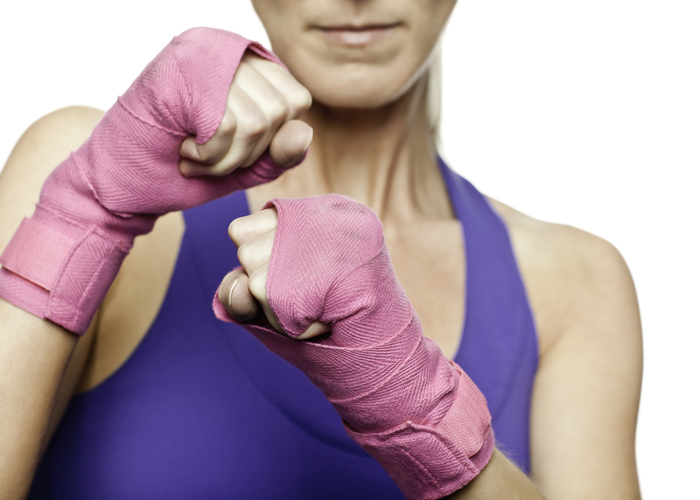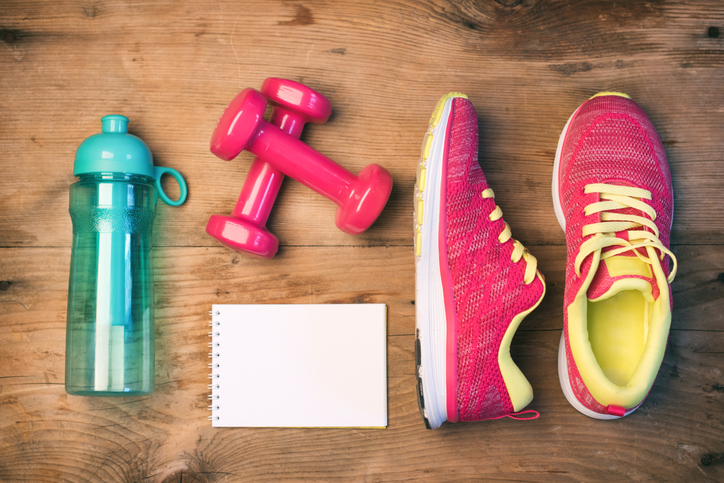A Cancer Diagnosis Is Scary, But Exercise May Scare Cancer Away

By Joy Stephenson-Laws, J.D., Founder
Receiving a cancer diagnosis may be one of the scariest things that could happen in your life. There may be some uncertainty, lack of control and helplessness. But surprisingly, there is some indication exercise may play a positive role in cancer recovery.
Take, for example, the story of a woman named Sally Morgan, discussed in this recent Medical Xpress report.
Sally was diagnosed with chronic lymphocytic leukemia. Leukemia is a blood cancer.
“It can take a long time before chronic leukemias cause problems, and most people can live with them for many years. But chronic leukemias tend to be harder to cure than acute leukemias,” according to the American Cancer Society.
After being diagnosed with cancer in 2019, Sally eventually took a clinical progressive exercise test after doing 12 weeks of high-intensity interval training.

“She has no symptoms from the disease and is in a ‘dynamic monitoring’ period, which means she isn't currently receiving treatment,” according to the report.
Sally also said that exercising made her feel better, have more energy and even move up a level on her tennis team.
Now researchers want to know whether exercise can help to keep cancer away.
“That is what Assistant Professor in Medicine David Bartlett, Ph.D., is trying to find out. He and other scientists have a hunch that exercise, in essence, acts like an immunotherapy—a treatment that boosts the body's own ability to fight cancer,” the report states.
“Bartlett's early findings look promising, and if he can find support to do more and larger studies, he hopes to add exercise to the toolbox of personalized cancer treatments that doctors can prescribe.”
Bartlett also said that evidence has shown that lifelong exercisers have a better ability to produce new immune system cells, compared to people who are sedentary.
This type of relationship with cancer and exercise is perhaps on reason why you should try and make exercise a habit and fit it in whenever you can, even if it just means taking the stairs instead of the elevator or simply stand up regularly if you sit all day due to your job.
“He [Bartlett] explains that during the minutes we are exercising, cells that fight off invaders—Natural Killer cells and T-cells— temporarily rush from the lymph nodes and other tissues into the blood. Bartlett points out that some people think that evolution favored this phenomenon in our ancestors; if you saw a lion or other predator and began running, survival was more likely if the body sent infection fighters to the blood, preparing for a bite wound.”
So exercise may very well prepare the immune system for a fight, and the fight against cancer is certainly one we all want to win.
Seek the advice of your doctor.As mentioned, every cancer diagnosis and prognosis are different. You always want to seek the advice of your doctor regarding physical activity if you have cancer. And depending on where you are in your journey, you may not feel well enough to exercise. But if you can get moving, it can certainly help.
“Too much rest can lead to loss of body function, muscle weakness, and reduced range of motion. So today, many cancer care teams are urging their patients to be as physically active as possible during cancer treatment. Many people are learning about the advantages of being physically active after treatment, too,” according to the American Cancer Society.
Note also that physical activity is great for both your body and mind especially if you are battling a serious illness, but remember that you need the proper intake of nutrients to perform well and recover afterwards. Read here to learn more about how to properly fuel your body for physical fitness.
It is very important to take routine nutrient tests in order to identify if you have any nutrient imbalances or deficiencies. If you do, a competent healthcare professional can work with you on making the necessary dietary changes and recommend quality supplements if necessary.
In general, it is also best to avoid ultra-processed foods as much as possible. These nutrient-void foods are known to cause inflammation and potentially contribute to the development of cancer. And, of course, it is extremely important to avoid smoking and drink alcohol in moderation (if at all).
The American Cancer Society recently updated their guidelines to cancer prevention, which you can read all about here.
Enjoy your healthy life!
The pH professional health care team includes recognized experts from a variety of health care and related disciplines, including physicians, attorneys, nutritionists, nurses and certified fitness instructors. This team also includes the members of the pH Medical Advisory Board, which constantly monitors all pH programs, products and services. To learn more about the pH Medical Advisory Board, click here.







